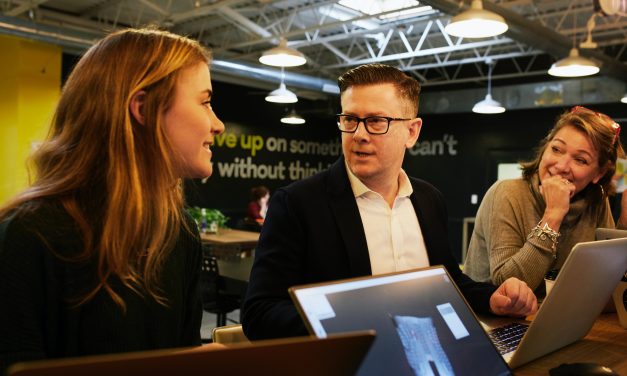How to interview…
Everyone carries out interviews each and every day. You just don’t always realise it.
Talking to your partner, or a friend, about what happened at work?
It’s an interview, question and answer to establish the information you’re interested in.
How to interview…
Everyone carries out interviews each and every day. You just don’t always realise it.
Talking to your partner, or a friend, about what happened at work? It’s an interview, question and answer to establish the information you’re interested in.
 Meeting someone new, for business, or pleasure, and getting to know them.
Meeting someone new, for business, or pleasure, and getting to know them.
That’s another interview. And then there are the more formal kinds, for a job, a podcast, the TV, an article, a project at work, just information, or the radio, like me here.
The point being that the art of interviewing is a valuable skill. And here are six important insights into how it’s done.
The First Interview Question
Of all that you ask, put the most work into the first question. It’s critical in setting the tone of the interview, and goes a long way to establishing whether it’s going to be a success.
The first question should get to the heart of what you need to know, but be presented in a way which isn’t scary and helps to get the subject talking.
In a job interview, for example, you might ask:
- Tell us about how you’ve prepared for this interview.
For a podcast about my teaching work, you might ask:
- Why is it that you’re so driven to teach?
If you’re talking to a friend about that date they went on:
- So, how did the date go?
The questions are also broad, giving the interviewee plenty of space to answer in a way which suits them.
This isn’t to say you shouldn’t ask challenging questions. They often produce the most interesting answers.
Just save them for later in the interview when you’ve got a rapport running.
They always work better that way, meaning the subject is more inclined to answer, and honestly.
Listen, Listen, and Listen Some More
This is the most important element to keep in mind throughout the interview.
Listen, and I mean REALLY LISTEN to what the person is saying.
It’s an easy trap to have a list of questions and reel them off, regardless of what you’re hearing.
But that’s not an interview, and it’s not satisfying.
You should listen to what’s interesting, and have the confidence to follow up on it.
What would an audience think if someone said they’d been a King in a previous life, and you didn’t follow up on it?
Or claimed to have swum the English Channel, then back again, when they were younger.
You’d look daft as an interviewer, and the listeners would go away feeling cheated of an interesting discussion.
I would have no more than five questions prepared for a guest in a half hour interview, and I wouldn’t expect to use all those.
Listen, listen and listen some more, and talk about what you’re hearing.
That’s the true art of interviewing.
Open Questions in Interviewing
To get an interview flowing, you need open questions.
They encourage someone to talk expansively, rather than just giving yes or no answers.
For example:
- Is this an open question?
Not good, as it’s going to get you a one word answer.
Whereas, on the other hand:
- What is an open question?
That produces a far more interesting response.
Think carefully about who you’re interviewing, and why.
If you wanted to talk to me about my blogs for example, would you ask:
- Do you like writing blogs?
Whereas there are many much better questions you could ask:
- Which of your blogs is your favourite, and why?
- What kinds of responses do you get to your blogs?
- How have your blogs helped you in working life?
The Body Language of an Interview
When you’re interviewing someone, particularly in a more formal context, they will often be nervous.
Your job is to get the best out of them that you can, so there’s a way you can help with that.
It’s simple, but highly effective:
- Smile at them
A smile is so warming and encouraging, and can really help someone to perform well.
If you’re feeling kind, nod as well.
You don’t have to do this throughout an interview, and sometimes it won’t be appropriate.
But some smiling and nodding at the start can help to get an interview running along nicely.
Challenging Questions
Don’t be afraid to ask these. They’re expected, can be highly revealing, and it’s critical they’re open questions:
- Why is there a year long gap in your CV?
- What’s your biggest regret in a work context?
- Why did you think this was a good idea?
As a BBC reporter, challenging questions were a mainstay of the job.
But here’s my secret for making them work, and certainly better than if they come across as overly aggressive.
That can alienate the interviewee, and the audience, too.
I always asked my challenging questions calmly, gently and politely.
You don’t need to shout, or be rude, to be tough.
(Which, incidentally, is a good maxim for life in general.)
If you’re worried about asking difficult questions, you can always soften them with with prefaces such as:
- Some people might think that wasn’t so wise to…
- Looking back, with the wisdom of hindsight…
- Isn’t it true that some analysts doubt the return on investment of writing blogs is worthwhile?
That trick distances you a little from the sting of the question, and can make it easier to answer.
The End of an Interview
This is often forgotten, but is the second most important part after the opening.
These are the words you leave a candidate, friend, interviewee, or even potential date with.
So it’s wise to think hard about them in advance.
Be kind, be generous, but be honest as well.
Saying thank you is standard. But embroider that with a snippet from your discussion to show you’ve listened, and appreciated.
- I don’t think I’ll ever forget that story about the frozen otter (one of mine, and yes, it did really happen!)
- Good luck with your plan to be the first person on Mars, let us know how it goes (excuse my imagination)
- I’ve learnt a great deal from this chat, including, vitally, how to successfully hitchhike a lift (yes, one of mine again)
About our guest blogger, Simon Hall
 Tutor and trainer in business, communications, media, presentations and public speaking skills, University of Cambridge.
Tutor and trainer in business, communications, media, presentations and public speaking skills, University of Cambridge.
Director, Creative Warehouse – a business communications, media, public relations, copywriting, editing, design, websites and branding consultancy.
His new book is Accelerating Your Business Through Communication, a complete guide to all your business messaging
LogicMelon
Award-winning recruitment software that will find, attract, hire and analyse the way you want to work. At LogicMelon, we have experienced software recruitment marketing specialists to help you build effective recruitment solutions supported by the best customer service you’ll find anywhere!
Email: [email protected] or call LogicMelon (UK) +44 (0) 203 553 3667 (USA) +1 860 269 3089
Employee Engagement Ideas for Valentine’s Day 2024
Employee engagement is an HR approach intended to improve the quality of interpersonal dynamics in the workplace.
Cognitive Ability Tests in Recruitment
Cognitive ability tests are used in the recruitment process to evaluate a candidate’s intellectual capabilities, problem-solving skills, and aptitude.
Benefits and Challenges of Outsourcing Recruitment
It is essential for organisations to carefully weigh the pros and cons and choose a outsourcing recruitment partner that aligns with specific needs and objectives.



